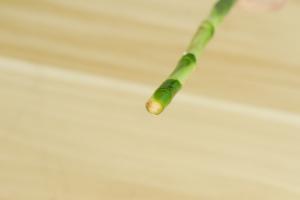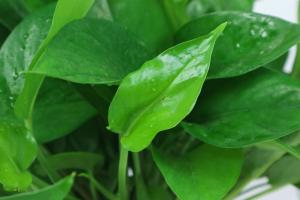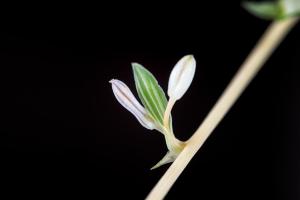Can I Over Water Bell Pepper Plants?
Bell peppers are a popular vegetable to grow in gardens and even in containers. They require specific growing conditions in order to thrive, including the right amount of watering. While watering is essential to the plants’ health, over watering can be detrimental. In this article, we’ll explore whether or not you can over water bell pepper plants and what the consequences can be.
The Importance of Proper Watering
Plants need water in order to carry out essential biological processes such as photosynthesis, transpiration, and nutrient uptake. Without the right amount of water, plants can wilt, become stunted, and even die. Bell peppers require about one inch of water per week, either from rainfall or irrigation, in order to stay healthy and produce fruit.
Signs of Over Watering
If you’re concerned that you might be over watering your bell pepper plants, there are a few signs to look out for. First, the soil will be constantly wet or even waterlogged. Second, the leaves will turn yellow or begin to drop off. Third, you may notice root rot or other plant diseases developing, as excess water creates a hospitable environment for harmful pathogens.
The Consequences of Over Watering
Over watering bell pepper plants can have serious consequences. As mentioned earlier, one of the biggest risks is root rot, which is a fungal infection that attacks the roots of the plant. Root rot impedes the plant’s ability to take up water and nutrients, leading to stunted growth and reduced fruit production. In severe cases, the plant may even die.
In addition to root rot, over watering can attract pests such as slugs, which thrive in damp conditions. The constant moisture can also increase the likelihood of foliar diseases such as powdery mildew, which can cause the leaves to become discolored and distorted.
How to Avoid Over Watering
The good news is that it’s relatively easy to avoid over watering your bell pepper plants. One way to ensure that you’re not over watering is to check the soil moisture regularly. Stick your finger about an inch into the soil; if it feels moist, wait another day before watering. If it’s dry, it’s time to water. Water deeply and evenly, so that the roots receive a consistent supply of water.
You should also make sure that your plants are growing in well-draining soil, which will prevent water from pooling around the roots. If your soil doesn’t drain well, consider amending it with organic matter such as compost or perlite.
Conclusion
Overall, it’s best to avoid over watering bell pepper plants. Too much water can lead to root rot, pest infestations, and foliar diseases. By checking the soil moisture regularly and ensuring that the soil drains well, you can encourage healthy growth and a robust harvest of delicious bell peppers.

 how many times do yo...
how many times do yo... how many planted tre...
how many planted tre... how many pine trees ...
how many pine trees ... how many pecan trees...
how many pecan trees... how many plants comp...
how many plants comp... how many plants can ...
how many plants can ... how many plants and ...
how many plants and ... how many pepper plan...
how many pepper plan...






























